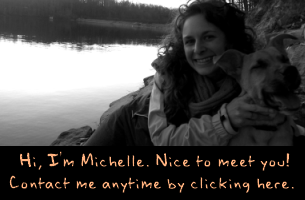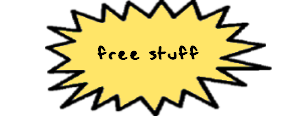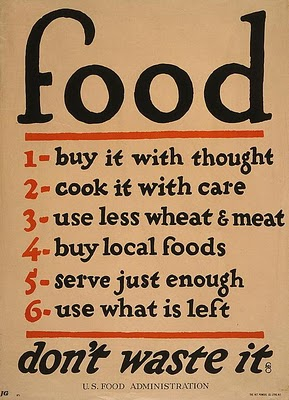4 unconventional tips for healthier eating
Written by Michelle Nardine RD. Follow me on Twitter.

We’ve been told a million times to eat more fruits and vegetables and reduce processed carbs and sugars. Oftentimes, healthy eating advice can be boring and ineffective. What follows are four actionable ideas that are not conventionally preached as eating advice. Some may even help you save a buck.
1. Get Smaller Plates
The main reason people gain weight is by simply eating too much. We forget to watch our portion size. Although I definitely don’t advocate fast food, an interesting video documentary by James Painter called Portion Size Me proved that even a 30 day diet of nothing but fast food can make you lose weight and lower cholesterol. The key is proper portions.
Want to automatically trick yourself into eating less food? Get smaller plates. Brian Wansink, author of Mindless Eating: Why We Eat More Than We Think, refers to studies that show you eat less food with smaller plates. The average plate size in America has been steadily increasing since the early 80’s, resulting in national weight gain.
To get back to the way things should be, get yourself some nice 8-10 inch diameter dinner plates and donate the big ones in your cupboard to your local charity or throw them off train tracks (I’m kidding, I swear!).
2. Start Gardening
Most everything that comes out of a garden is healthy and delicious. You will be eating the freshest food on the planet resulting in a maximum amount of nutrients.
And BONUS- you will be saving money! According to Vegetable Gardening for Dummies, a garden that is 20 feet by 30 feet requires an initial investment of $70 for things like seeds and soil, and produces more than $600 worth of vegetables over the course of a season.
There are several ways to get started depending on your situation. You can start small by potting plants in containers on your porch or just growing herbs from your kitchen window. Take it up a notch by creating raised beds in your backyard or at a friend’s house. You might also look into joining a community garden, where you’re sure to get expert advice and meet friendly neighbors. You can find more tips and links in my article “How to Start Gardening“.
3. (Beef Eaters) Organize a Cow Share
If you’re a beef eater who has seen documentaries such as Food, Inc that expose the horrors of factory farming, you’re probably interested in getting more of your beef from local farms raising animals on fresh pasture. You may also have noticed that grass-fed beef is more expensive.
For some, the high price of grass-fed can be beneficial by causing you to rely more on fruits and vegetables. For many people however, it’s a deterrent which causes them instead to choose factory farmed beef that’s higher in saturated fat and lower in good fats and omega-3s. To make the switch to grass-fed without killing your wallet, buy in bulk.
Get a few friends together who prefer grass-fed and go in on a whole or half cow from a local farm and store it in your freezer. With whole butchered cows typically selling for less than $3.00 a pound, you can stand to save a lot of money over time. Visit eatwild.com to find an ethical farming operation in your area.
4. Read a Compelling Book
Sometimes, a well-written compelling story is needed to drive a point home and solidify it in our minds. Over time, these ideas can turn into habits that shape our actions. I think one easy way to eat better is to read about healthy food and the surrounding industries. Here are 4 books you might consider to get started:
- Good Calories, Bad Calories by Gary Taubes. Great information! If you haven’t already, check out Darya’s thorough review of this life changing book.
- The Omnivores Dilemma by Michael Pollan. One of the most talked about food books of the last few years and for good reason. A beautifully written book that is part policy and all heart.
- In Defense of Food: An Eater’s Manifesto by Michael Pollan. This is a great follow up to The Omnivores Dilemma, loaded with fascinating information I hadn’t a clue about.
- Mindless Eating: Why We Eat More Than We Think by Brian Wansink, Ph.D. It shows why you might not realize how much you’re eating, what you’re eating, or even why you’re eating.
–
Subscribe to this blog so you don’t miss a future post on the new hobby I call “Salad Hiking”.
photo by cliff1066












